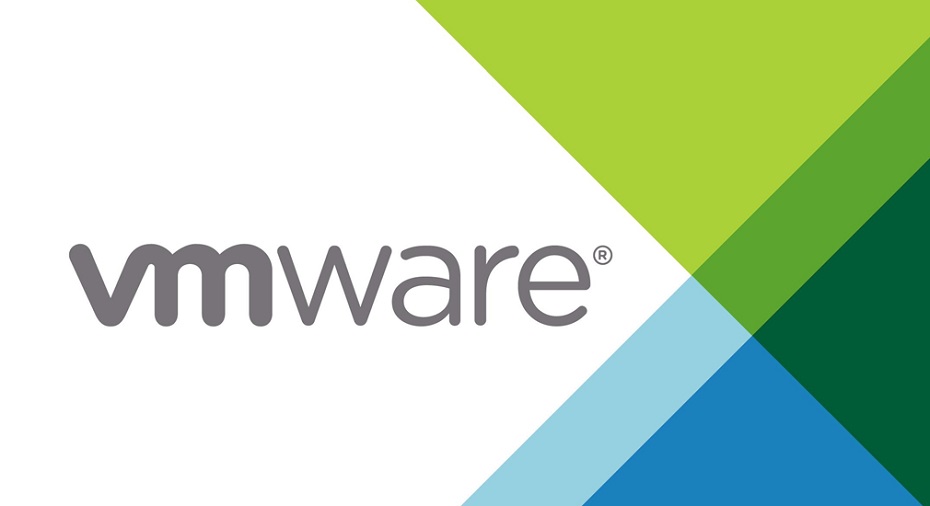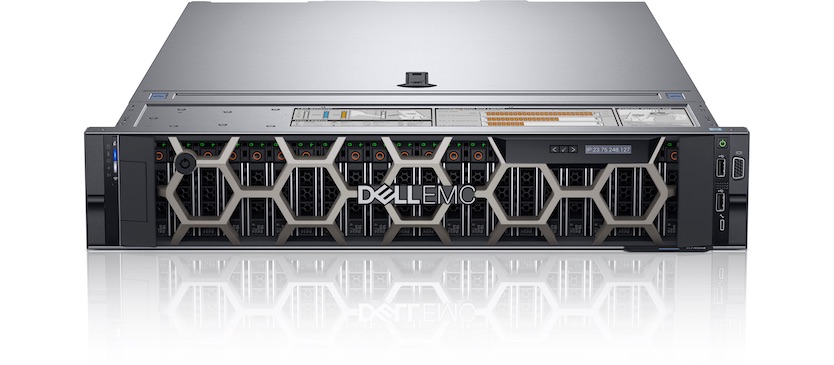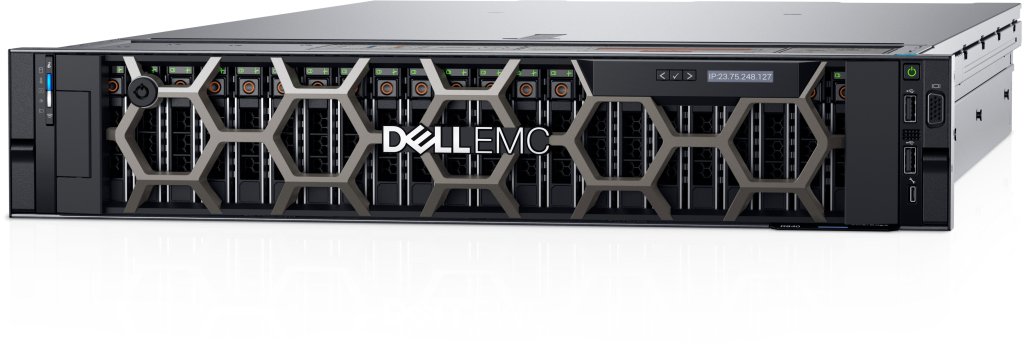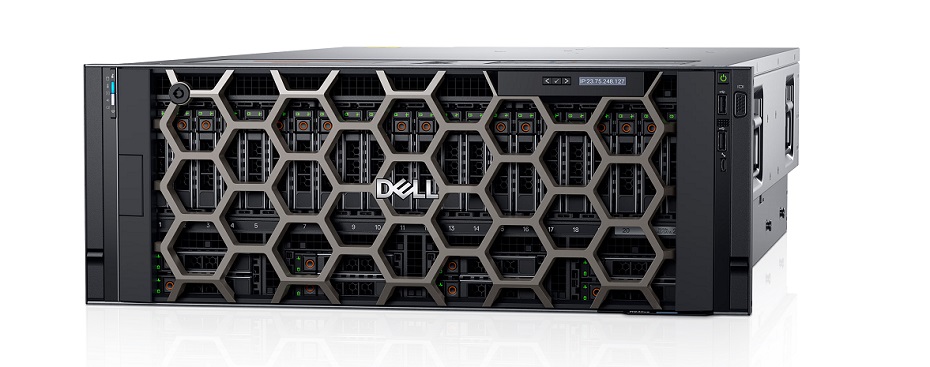Best DELL Server for VMware
Content:
In the dynamic landscape of modern IT infrastructure, virtualization has emerged as a cornerstone technology, offering unparalleled flexibility, efficiency, and scalability. At the forefront of virtualization solutions stands VMware, a pioneer in the field with its suite of software products empowering organizations to optimize their computing resources and streamline operations.
Central to the success of any VMware deployment is the selection of the right server hardware. The server acts as the foundation upon which virtualized environments are built, directly impacting performance, reliability, and overall efficiency. Among the myriad options available, Dell's PowerEdge server lineup has garnered significant acclaim for its robustness, scalability, and compatibility with VMware software.

This article delves into the realm of VMware virtualization and explores the intricacies of choosing the best Dell server models tailored for VMware deployments. By understanding the requirements, evaluating key criteria, and highlighting top Dell server offerings, IT professionals and decision-makers can make informed choices to optimize their virtualization infrastructure.
Criteria for Evaluating Dell Server Models
In the quest for the optimal Dell server model for VMware deployments, several crucial criteria must be carefully considered. Each criterion plays a pivotal role in determining the server's suitability for hosting VMware virtualization environments, ensuring smooth operation, high performance, and scalability. Below are the key criteria IT professionals should evaluate when selecting Dell server models for VMware.
Performance:
The performance of a Dell server directly impacts the speed and responsiveness of VMware virtual machines (VMs).
Considerations include the processing power (CPU), memory (RAM) capacity, and storage capabilities.
Look for Dell server models equipped with powerful multi-core processors, ample RAM, and storage options optimized for VMware workloads.
Scalability:
As virtualization needs evolve and grow, scalability becomes paramount.
Evaluate the scalability options offered by Dell server models in terms of CPU, RAM, and storage expansion capabilities.
Choose servers that can seamlessly accommodate increasing numbers of VMs and resource demands without compromising performance or reliability.
Reliability:
Reliability is non-negotiable in VMware environments where downtime can have significant repercussions.
Assess Dell's track record for server reliability, including mean time between failures (MTBF) and overall system uptime.
Look for features such as redundant power supplies, hot-swappable components, and advanced hardware reliability features to minimize the risk of disruptions.
Compatibility:
Compatibility between Dell server hardware and VMware software is critical for seamless integration and optimal performance.
Ensure that Dell server models are certified and tested for compatibility with VMware vSphere, ESXi, and other key VMware products.
Consider additional features or optimizations specifically designed to enhance compatibility and interoperability with VMware virtualization environments.
Manageability:
Simplifying server management and administration is essential for efficient VMware deployments.
Evaluate the built-in management tools and features offered by Dell server models, such as remote management interfaces (iDRAC), hardware monitoring capabilities, and integration with VMware management software.
Look for servers that streamline deployment, monitoring, and troubleshooting tasks, reducing administrative overhead and enhancing operational efficiency.
By meticulously assessing these criteria, IT professionals can make informed decisions when selecting Dell server models for VMware deployments, ensuring that their virtualization infrastructure is robust, scalable, reliable, and optimized for performance and manageability.
Top Dell Server Models for VMware
When it comes to selecting the best Dell server models for VMware deployments, several standout options offer the perfect blend of performance, scalability, reliability, and compatibility. Below are some of the top Dell PowerEdge server models ideally suited for hosting VMware virtualization environments.
Dell PowerEdge R740

The Dell PowerEdge R740 is a versatile 2U rack server designed for exceptional performance and scalability in virtualized environments.
Key Specs:
-
Processor: Intel Xeon Scalable processors
-
Memory: Up to 3TB DDR4 RAM
-
Storage: Support for SAS, SATA, and NVMe SSDs
With its powerful processing capabilities, expansive memory options, and flexible storage configurations, the R740 excels in handling demanding VMware workloads. Its compact form factor and robust design make it an ideal choice for virtualization projects where space and performance are critical.
Dell PowerEdge R840

The Dell PowerEdge R840 is a high-performance 4U rack server engineered for scalability and intensive virtualization workloads.
Key Specs:
-
Processor: Intel Xeon Scalable processors
-
Memory: Up to 6TB DDR4 RAM
-
Storage: Support for up to 24 NVMe drives
With its massive memory capacity and extensive storage options, the R840 offers unparalleled scalability for VMware environments. Its modular architecture allows for easy expansion, making it an ideal choice for organizations looking to scale their virtualization infrastructure while maintaining exceptional performance and reliability.
Dell PowerEdge R940

The Dell PowerEdge R940 is a high-density 4U rack server optimized for mission-critical VMware deployments.
Key Specs:
-
Processor: Intel Xeon Scalable processors
-
Memory: Up to 6TB DDR4 RAM
-
Storage: Support for up to 24 NVMe drives, optional GPU support
With its advanced memory and storage capabilities, along with optional GPU support for accelerated computing, the R940 is tailor-made for demanding VMware environments. Its robust architecture and performance enhancements make it an ideal choice for organizations seeking uncompromising reliability and performance in their virtualized infrastructure.
By considering the unique features, key specifications, and overviews of these top Dell server models, IT professionals can confidently select the most suitable platform for their VMware deployments, ensuring optimal performance, scalability, and reliability in virtualized environments.
Considerations Beyond Hardware
While selecting the right Dell server model lays the foundation for a successful VMware deployment, several additional factors must be taken into account to ensure seamless integration, efficient management, and optimal performance. Beyond hardware specifications, these considerations play a crucial role in maximizing the value of VMware virtualization environments hosted on Dell servers:
Support and Warranty Options
The availability of comprehensive support and warranty options is essential for maintaining the reliability and uptime of Dell server hardware.
Evaluate Dell's support offerings, including technical support, on-site service agreements, and extended warranty options tailored for VMware deployments.
Ensure timely access to firmware updates, patches, and proactive support services to mitigate potential issues and minimize downtime.
Integration with VMware Ecosystem
Seamless integration with the broader VMware ecosystem is critical for optimizing performance and leveraging advanced virtualization features.
Verify compatibility with VMware software suites such as vSphere, vCenter Server, and VMware NSX for network virtualization.
Explore integration capabilities with VMware management tools for centralized monitoring, orchestration, and automation of virtualized environments.
Total Cost of Ownership (TCO) Analysis
Conduct a comprehensive TCO analysis to evaluate the long-term financial implications of Dell server deployments for VMware virtualization.
Consider factors such as upfront hardware costs, ongoing maintenance expenses, energy consumption, and scalability requirements.
Assess the potential cost savings, efficiency gains, and business benefits derived from virtualization consolidation, resource optimization, and streamlined management.
By addressing these considerations beyond hardware specifications, IT professionals can ensure a holistic approach to VMware deployments on Dell servers, maximizing efficiency, reliability, and return on investment. A well-rounded strategy encompassing support, integration, and TCO analysis empowers organizations to unlock the full potential of their virtualization infrastructure while mitigating risks and optimizing operational outcomes.
Conclusion
Navigating the landscape of Dell server models for VMware deployments requires careful consideration of performance, scalability, reliability, compatibility, and management capabilities. By leveraging the insights provided in this article, IT professionals and decision-makers can make informed choices to optimize their virtualization infrastructure and drive business success.
From the robust performance of the Dell PowerEdge R740 to the unparalleled scalability of the R840 and the mission-critical reliability of the R940, Dell offers a diverse range of server models tailored to meet the unique requirements of VMware environments. Each model presents a compelling combination of key features, specifications, and customer benefits, empowering organizations to build resilient, efficient, and high-performing virtualization platforms.
In conclusion, selecting the best Dell server model for VMware deployments requires a thorough understanding of requirements, diligent evaluation of criteria, and strategic considerations beyond hardware specifications. By aligning technology investments with business objectives and adopting a forward-thinking approach, organizations can build resilient, scalable, and future-ready virtualization environments that propel them towards their goals in an ever-evolving digital world.